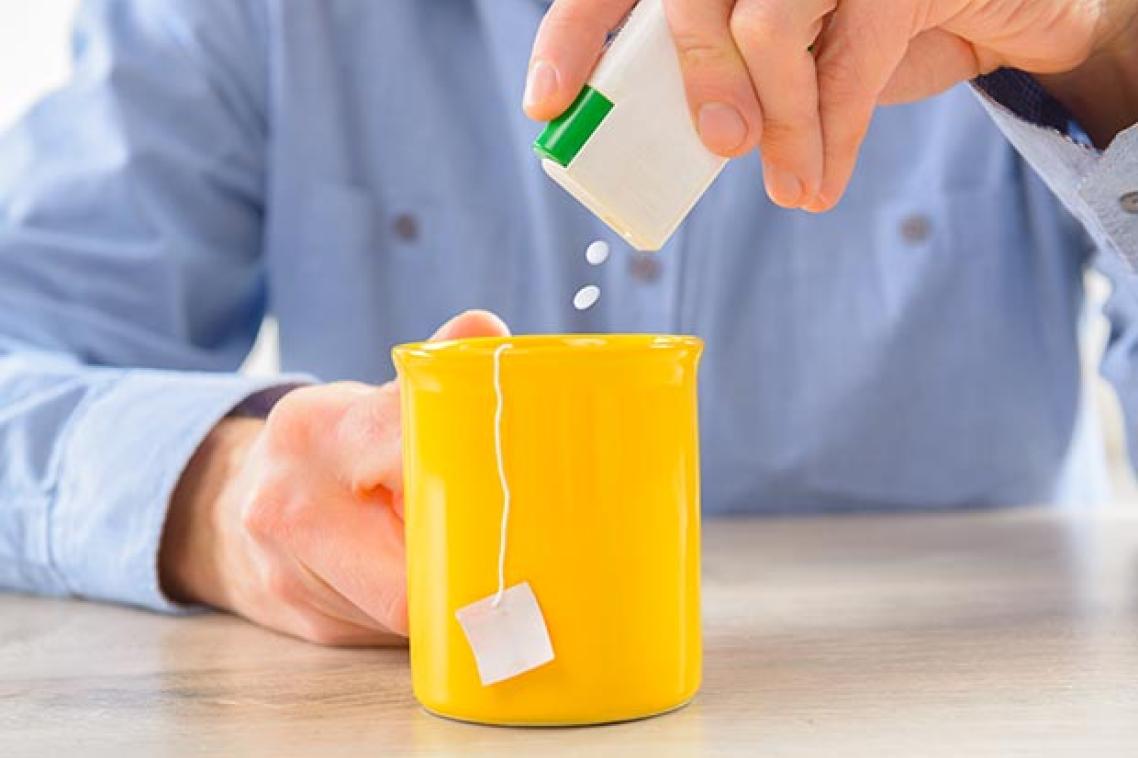Artificial sweeteners may promote antibiotic resistance

Common artificial sweeteners such as saccharine and aspartame could speed up the spread of antibiotic resistance, according to University of Queensland research.
More than 117,000 tonnes of artificial sweeteners are consumed across the world each year and are accepted as safe food additives, but their effects on antibiotic resistance had been unknown.
Associate Professor Jianhua Guo, from UQ’s Advanced Water Management Centre, said scientists investigated if artificial sweeteners would encourage the transfer of antibiotic resistance genes between bacteria.
“Our previous studies have reported many common household items promote antibiotic resistance, so recently we started wondering if artificial sweeteners may also play a role,” Dr Guo said.
The research team tested four commonly consumed artificial sweeteners, including saccharine, sucralose, aspartame, and acesulfame potassium.
UQ PhD student Zhigang Yu said the sweeteners significantly accelerated the exchange of bacteria through a process known as conjugation.
“This process is regarded as the bacterial equivalent of sexual reproduction or mating and occurs when two bacteria come into direct contact,” Mr Yu said.
“The resistance genes are transferred from the donor to the recipient, and as a consequence, the recipient might become a multi-drug resistant strain of bacteria.
“Given the high consumption of non-antibiotic pharmaceuticals, our findings highlight the potential risk associated with the presence of artificial sweeteners in our food and drinks.”
Antimicrobial resistance has become a major threat to public health globally.
Dr Guo said further animal or in vivo research was needed to test whether long-term use of artificial sweeteners was able to promote antimicrobial resistance in human urinary and gut systems.
“It is becoming clear that we need to be very careful in our use of these common products, as overuse can rapidly increase the problems brought on by antimicrobial resistance,” Dr Guo said.
The study has been published in the ISME journal (DOI: 10.1038/s41396-021-00909-x).
The research was undertaken by a UQ team which also included Dr Yue Wang, Dr Ji Lu and Dr Philip Bond, and was funded by the Australian Research Council Future Fellowship.
Media: Associate Professor Jianhua Guo, j.guo@awmc.uq.edu.au; Sharon James, s.james@awmc.uq.edu.au, +61 7 3346 7205.
Topics
Related articles

New reforms to tackle illicit tobacco trade

1% of people don’t have sex. New research shows it may be partly genetic
Media contact
UQ Communications
communications@uq.edu.au
+61 429 056 139
